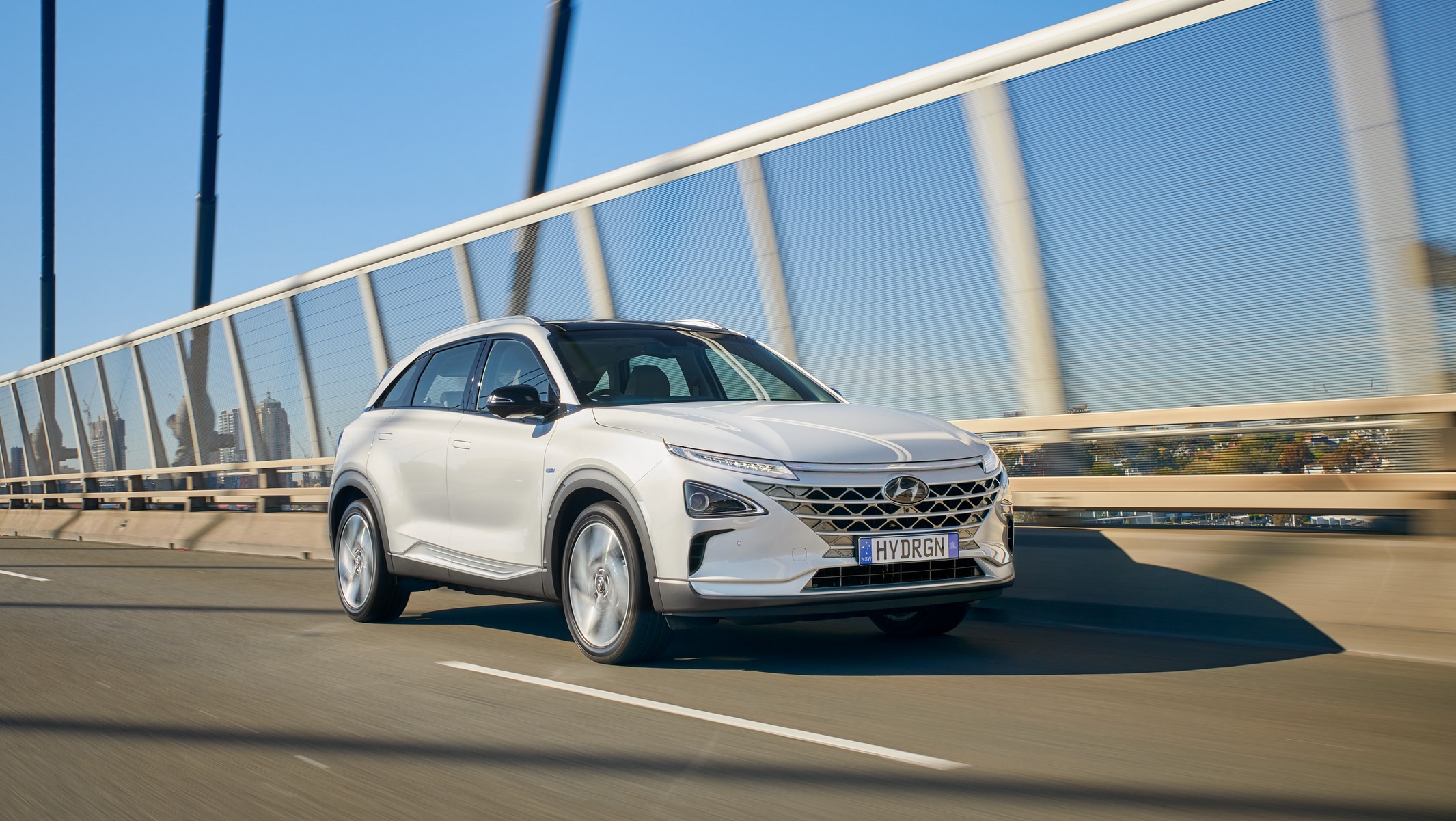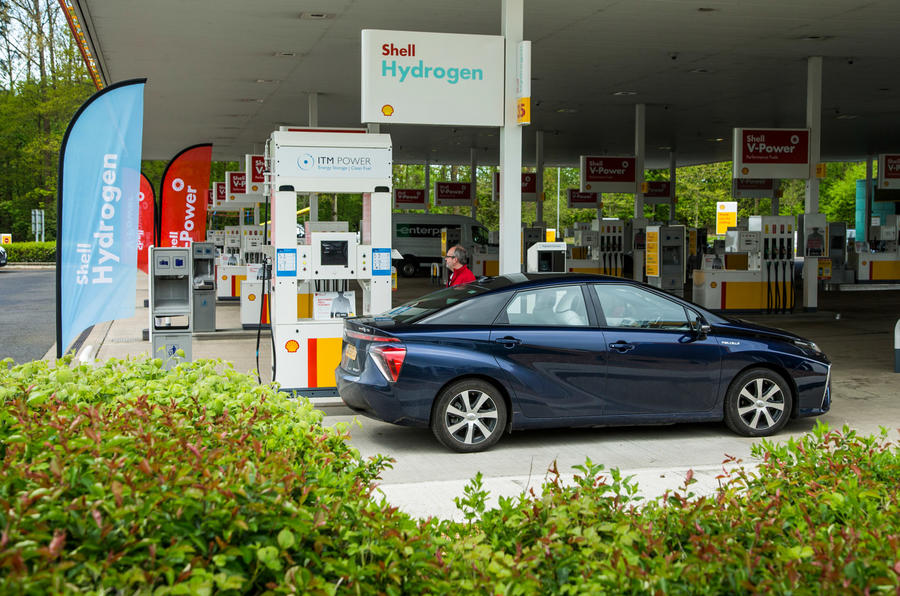
Will hydrogen’s time to shine in the auto industry ever arrive?
Commitment to hydrogen-powered vehicles is increasing across the industry and many predict they will become as important as battery-electric vehicles (BEVs) over time, in the way that petrol and diesel have sat alongside each other for so long. Hyundai and Toyota remain the major players for now.
Hyundai is planning a 500,000-units-per-year production capacity of FCEVs by 2030, including cars and commercial vehicles. Toyota, meanwhile, aims to increase global production to 30,000 fuel cell stacks by the early 2020s and has started deploying its hydrogen buses, forklifts and heavy trucks in some parts of the world.
Other car makers are dipping their toes in the water. Mercedes offers the GLC F-Cell in Germany, but only on lease, and BMW plans to launch hydrogen-fuelled vehicles in some of its larger SUVs, such as the X6 and X7, from 2025.
BMW’s board member for research and development, Klaus Fröhlich, told Automotive Daily’s content partner Autocar earlier this year: “We are convinced that various alternative powertrain systems will exist alongside one another in future, as there is no single solution that addresses the full spectrum of customers’ mobility requirements worldwide.
“The hydrogen fuel cell technology could quite feasibly become the fourth pillar of our powertrain portfolio in the long term. The upper-end models in our X family would make particularly suitable candidates.”
JLR’s Project Zeus aims to produce a hydrogen-fuelled Range Rover later this decade. Talking about the project, Nick Rogers, JLR engineering boss, said: “We truly believe hydrogen has a real place and opportunity – particularly in bigger vehicles.”
Despite this, FCEVs clearly are not where BEVs are today. The predominant reason is fuel cell production cost, which is still significantly higher than that of batteries.
Other hurdles include concerns over the safety of hydrogen storage and the sustainability of how the hydrogen is created. Splitting water into hydrogen – the most common method of creating it – demands a lot of electricity, so it only makes sense if it’s created with renewable energy.
One clear route forward for hydrogen is in commercial vehicles. Thanks to faster refuelling (almost equivalent to petrol and diesel) and longer range than BEVs, hydrogen and commercial vehicles are a more natural fit than battery-electric. Hyundai-Kia’s FCEV R&D boss, Sae-Hoon Kim, has said: “Developing fuel cell technology for commercial vehicles is a priority for advancing the uptake of hydrogen”.
For now, some makers are only betting on hydrogen commercial vehicles. The PSA Group plans to launch a fuel cell van by 2021 but there are no hydrogen cars on the cards.

Talking about manufacturers’ plans, SMMT chief executive Mike Hawes said: “Hydrogen will have a seat at the table in the future. We’re already seeing different manufacturers have different strategies. Some are saying electric. Some are saying electric and hydrogen. Certainly for heavier vehicles, it will be a mainstay. We’re already seeing it in some buses and larger vehicles.”
Most industry executives worldwide also believe FCEVs will break through in industrial transportation, according to KPMG’s 2020 Automotive Executive Survey. A total of 84 per cent of players predicted hydrogen progress would first come through transport larger than cars, up 5 per cent on 2019.
There were also regional differences found between China and Western Europe. While only 53 per cent of Western European executives agreed that industrial transportation would provide the platform for FCEVs, 75 per cent of Chinese executives agreed on this future development, “indicating that Chinese executives expect FCEVs to play a bigger role in an industrial context”, said KPMG.
There’s no doubt, then, that commercial vehicles will lead the way for hydrogen power, but when might we expect reasonably priced cars to battle BEVs? According to Hyundai’s Kim: “At around 200,000 units a year, you get the scale to buy the materials you need at a price that could put a hydrogen car on a cost par with today’s battery-electric vehicles. At the current rate of demand, I can see that happening within five years.”
Rachel Burgess



